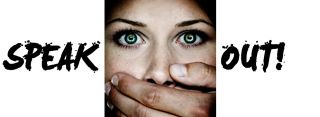Domestic Violence
Domestic Violence: Why I Stayed and Why I Left
Grammys take a stand against violence and prompts a writer to share her story
Posted February 9, 2015

When an activist shared her story to the world during the 2015 Grammy Awards, saying, “My name is Brooke Axtell and I’m a survivor of domestic violence,” it was personal. It felt as if she were sharing my story.
“Authentic love does not devalue another human being,” Axtell continued. “Authentic love does not silence, shame and abuse.”
Axtell’s words, followed by Katy Perry’s rendition of "By the Grace of God" that brought the singer to tears, resonated through me. Perry sang:
Wasn't gonna let love take me out that way.
I too am a survivor of domestic violence. As it is with Axtell, I count myself as one of the lucky ones who left her abuser.
I had no other options. I knew my abuser could not will away his rage. It was born years earlier from a childhood of hurt, of dejection, rejection, and neglect, from a too busy mother with cruel boyfriends and multiple husbands, and an absent father. It manifested into out-of-control and unpredictable episodes of anger as he lashed out at me.
As the violence escalated, my injuries worsened. When he lost control, there was no stopping him, no reasoning with him, no calming him down. I worried that one day he would go too far, hit or kick me too hard, or throw me against a wall or down the stairs one too many times.
It happened before there were women’s centers, before there was an understanding about battered spouses and partners, before I understood it myself.
Today, such abuse is referred to as intimate partner violence. Some of the warning signs—controlling ways, a string of failed relationships, isolation—were there. But I was too young, too naïve, and too uninformed before we married to recognize them for what they were: risk factors.
Eventually I did what Perry’s lyrics say: “I picked myself back up. I put one foot in front of the other.” And then I left.
My leaving happened eight years into the relationship and six years after the physical and emotional abuse had begun, following a moment of clarity when something inside me clicked. It had taken me years to reach that point, but I finally got it. I knew there wasn’t anything I could do or say to change him or the abuse. It came to me as I cowered on the floor waiting for the blows I knew would come, that I had no choice. I couldn't save him or our relationship, but I could save myself.
Because of my personal experience, after I became a crime-beat newspaper reporter, whenever I heard a domestic violence call come across the police scanner, I jumped at the opportunity to cover the case. My reasons were twofold: to give victims a voice; and to inform the public that domestic violence was going on across their street, in their neighborhood, in their city.
My hope is that the message from Brooke Axtell and Katy Perry resonates with others.
My message to those still suffering at the hands of a person professing to love them but physically abusing them is to tell someone. Seek help. And leave. You have no choice but to save yourself. It’s a matter of life or death.


